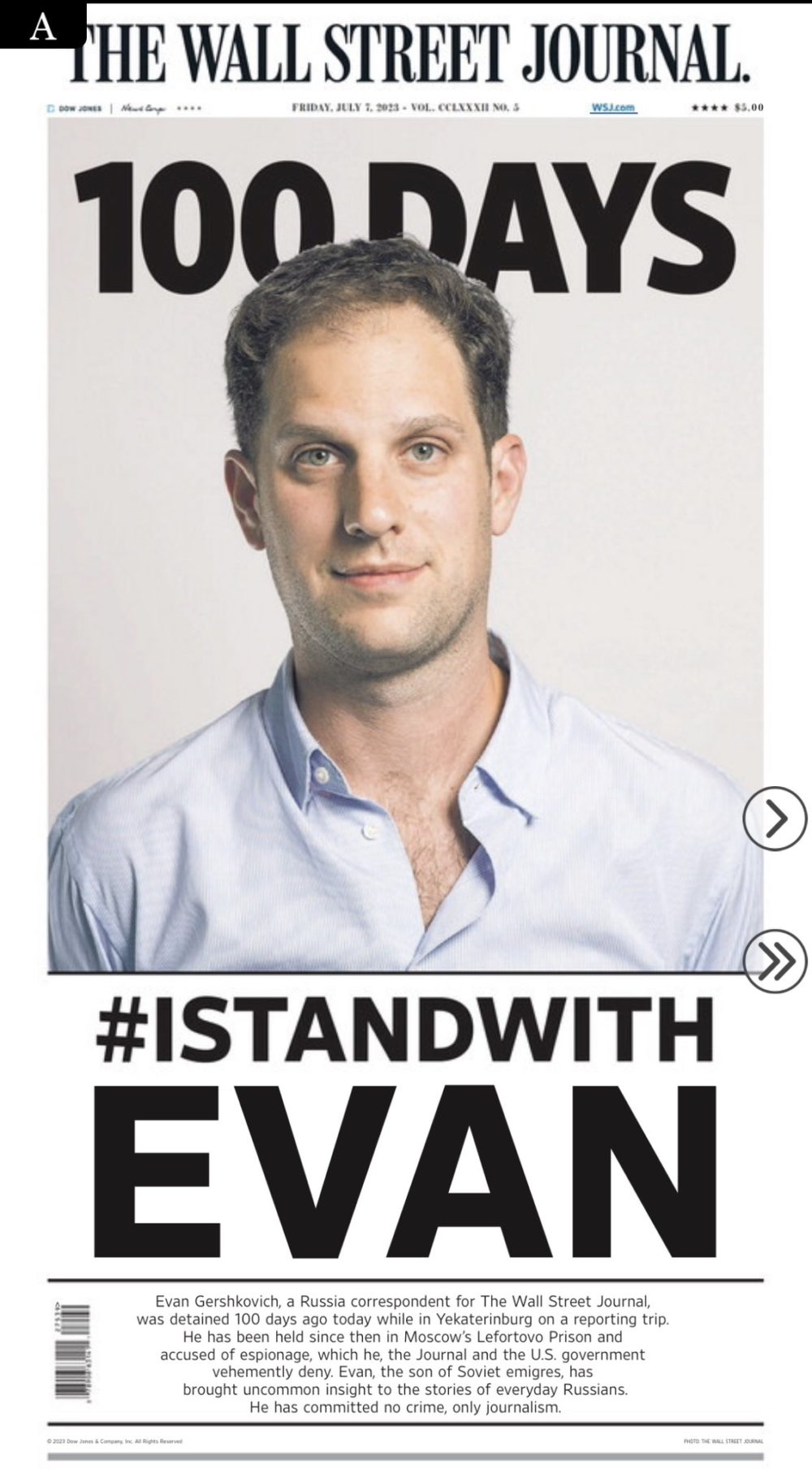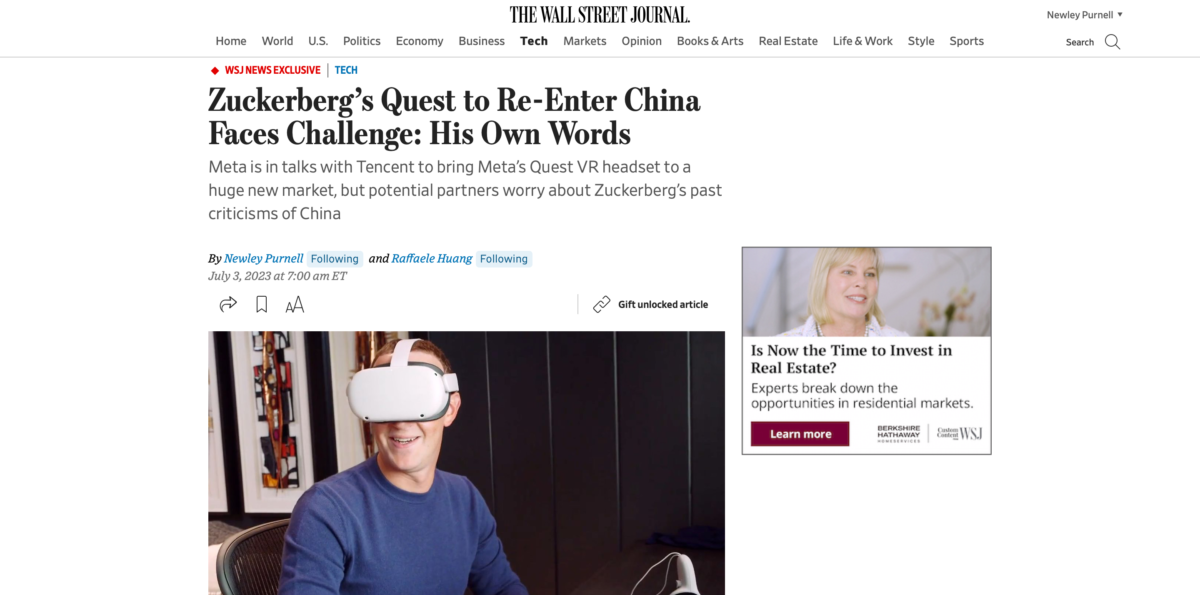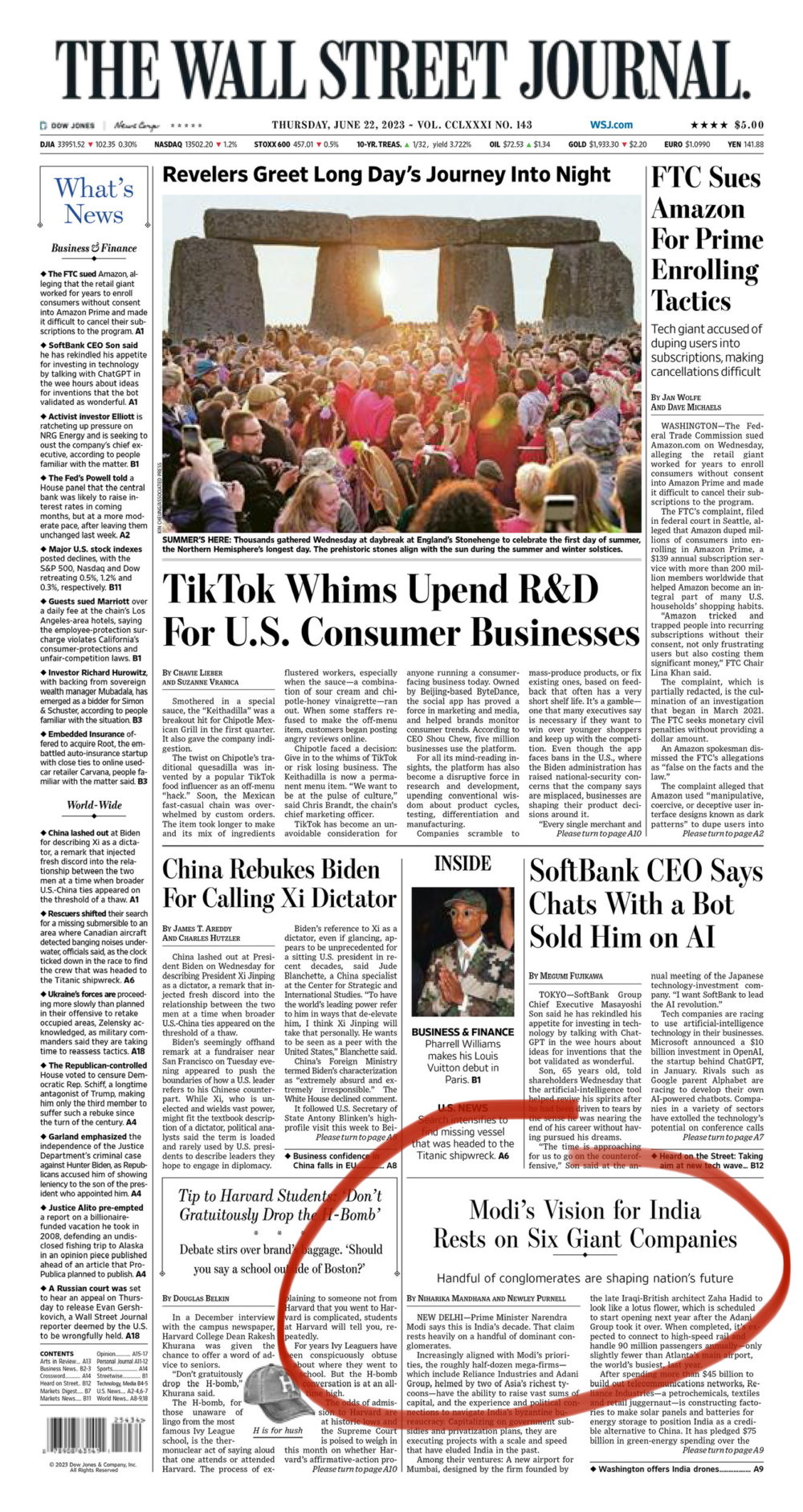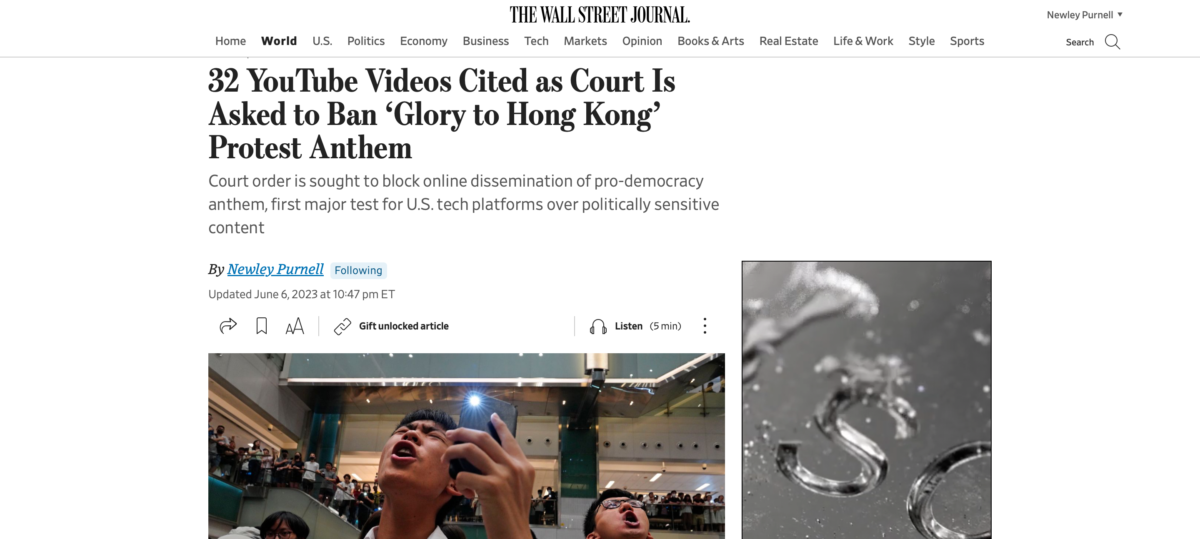
Welcome to the latest edition of Newley’s Notes, a weekly newsletter containing my recent Wall Street Journal stories, must-read links on tech and life, and funny dog videos.
Sent as a newsletter July 10. Not on my list? Sign up here.
👋 Hi friends,
Image of the week, above:
Friday’s WSJ page one. More below…
Here are 10 items worth your time this week:
1) 📰 Friday marked 100 days since our WSJ colleague Evan Gershkovich was wrongfully arrested in Russia for doing his job. We continue to keep his name front and center. You can read his reporting, and our stories about him, at WSJ.com/Evan.
2) 🧵 Bad news for Elon: Meta (FKA Facebook) launched Threads, a Twitter rival, and it’s already attracted 70 million users. (If you must know, I’m @Newley.)
3) ⚠️ A major new study from Denmark found heavy cannabis users were much more likely to be diagnosed later with clinical depression and bipolar disorder.
4) 🔥 Last week may have been the Earth’s hottest ever on record.
5) 📷 Here are the winners of this year’s Drone Photo Awards.
6) 🎳 GQ profiles Australian professional bowler Jason Belmonte, known for his two-handed roll.
7) 🎤 Nice collection of 2023 pop music party songs from around the world.
8) 😌 You may have heard of autonomous sensory meridian response (ASMR) videos, but are you familiar with “unintentional ASMR”?
9) 🍿 MovieSpoilers provides plot summaries – and endings! – of various films.
10) ⚽ The first female head coach of an English men’s professional soccer side is Hannah Dingley, recently appointed by Forest Green Rovers.
•••
🦴 Dog-related video of the week:
“Just watch this dog, he’s better than me.”
•••
💡 Quote of the week:
“Do not consider painful what is good for you.” – Euripides
•••
👊 Fist bump from Hong Kong,
Newley









